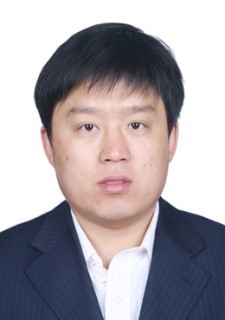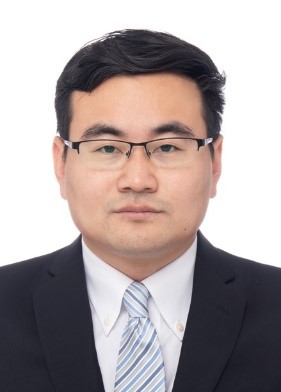Keynote Speakers
Prof. Wenzheng Li , Beijing University of Technology
With the rapid development of emerging digital technologies such as Internet of Things (IoT), computation power network technology, simulation technology, and artificial intelligence (AI), blockchain technology, humanity is entering an era of “humans-machines-objects” intertwined in the integration based integration of sensing, communication, and computation, the opening of the new era of industrial internet with the interconnection of “humans-machines-objects” and computing power networks. Industrial internet is a new stage of the industrial internet that combines new information and communication technologies with the deep integration of the industrial, This allows for “parallel” interaction between the real industrial physical space and the virtual industrial digital space, leading to the development of digital twins to drive the transformation of the industrial internet from “virtual” to “reality,” as well as the introduction of a new way to visualize and manage the industrial internet. With the leadership of new generation artificial intelligence, blockchain, and metaverse, various digital technologies converge and evolve, bringing “human- industrial cyber spaces-industrial physical spaces, economy-society spaces” together for a deep integration and interaction. This has enabled the industrial internet to enter a new era, and ushers industrial metaverse of the potential form of industrial Internet.
Starting from the development and evolution trend of the new generation of information and communication technology, the report puts forward the basic concept, connotation, technical characteristics and system architecture of the industrial metaverse in view of the current industrial Internet application needs. Finally, the report presents the application scenarios and challenges faced by the industrial metaverse.

Wenzheng Li received the Ph.D degree in Huazhong University of Science and Technology, Wuhan, China, Postdoctoral fellow of Beijing Institute of Technology, Beijing, China, Visiting professor scholar of Valenciennes University (UVHC),France, Professor of Beijing University of Technology. IEEE China Council Standing Committee Members and Chairman of IEEE Industry Liaisons & Innovation Committee, Director of China Communications Society, Member of Blockchain Branch of China Electronics Society, Member of Computing Power Network Committee of China Communications Society, Co-Chairmen of 2024 IEEE China Belt and Road Congress on AI for Sustainable Development, Co-Chairmen of 2024 IEEE China Computational Power Conference.
Over the years, Prof Li Wenzheng has made a series of achievements in the new generation Internet architecture, the integration of blockchain and edge computing, the metaverse and Web3.0, and won prizes of provincial and ministerial scientific and technological achievements, Published 4 monographs and over 80 academic papers and the title of “education innovation project” pioneer of Beijing’s education system in 2007.
Prof. Chuanjun Li, Tianjin Sino-German University of Applied Sciences
Taking process requirement as the guide and cutting data processing as object, a service-oritented manufacturing system for intelligent NC machining is a process of data transmission, decision and execution continuously, the NC machine processing mode has been transformed form a single product machining to the service for machining processing whole life cycle. “Feeling” is based on the technology of Internet of things which fuses multi-sensor technology to monitor characteristic signal during NC machine processing. “Knowledge” applies data mining theory to evaluating machining parameters, which can analyze the characteristic of machine process reasonably. “Execute” combines real-time data and historical data which analyzed by machining parameters optimization system, and the analysis results can be transmitted to remote engineers for reference. An effective database model has been established to realize quick query and accurate response for large and complex machining parameters.

Li Chuanjun, male, born in April 1975, Doctor of Engineering, professor, master’s tutor, currently deputy dean of the School of Mechanical Engineering, Tianjin Sino-German University of Applied Sciences, senior member of the Chinese Mechanical Engineering Society, member of CCF, member of the National Working Group on Digital Simulation Management Standards for Manufacturing Industry, expert of the National Institute of Vocational Education Standards for the Mechanical Industry, member of the Chinese Professional Committee for On-line Inspection Technology and Intelligent Manufacturing. Member of National Teaching Steering Committee of Mechanical Engineering Disciplines for Applied Undergraduates, presided over and participated in more than 10 scientific research projects at all levels, including NSFC major projects, 04 major special projects, Tianjin Intelligent Manufacturing Special Projects, Hebei Province Key R&D Programs, etc. He has published more than 40 theses and obtained 9 authorized national invention patents, and he is also a reviewer of the journal of Control Engineering, and a member of the editorial board of the journal of New Industrialization.
Currently, he is teaching undergraduate courses such as “Fundamentals of Control Engineering”, “Fundamentals of Mechatronic System Design”, “Principles and Applications of Microcontroller”, “Product Design and Virtual Prototyping”, and graduate courses such as “Frontier Technology in Mechanical Field”. Product Design and Virtual Prototyping” and “Frontier Technology in Mechanical Field”. He also serves as an off-campus innovation and entrepreneurship tutor at the School of Mechanical Engineering of Tianjin University, and a part-time master’s student tutor at Shanghai University and Tianjin University of Science and Technology.
Main research interests: high-performance motion control systems, numerical control technology, robotics and machine vision.
Talent titles and honors: Candidate of Hebei Province Excellent Experts Training Abroad, 2016;Tianjin Zhongde University of Applied Sciences Master’s Degree Instructor Profile Candidate for the second level of Hebei Province’s “Three Thirty-Three Talent Project”, 2017; In 2018, Excellent Science and Technology Worker of Hebei Province; In 2019, A card talent of Tianjin Haihe Program. Third Prize of Hebei Provincial Scientific and Technological Progress, Development and Application of Spatial Tool Compensation Technology Based on Surface Direct Interpolation (2017JB3013-1), 2017; Third-class prize of Science and Technology Progress of Chengde City, Research on the application of Master CAM post-processing in CNC machine tool machining (2011-03-13-01), 2011.
Prof. Baoquan Li ,Tiangong University, China
Intelligent level of quadrotor unmanned aerial vehicle is enhanced by environment perception and autonomous control, and they have been widely used such as in remote perception, high-altitude operation, and exploration. Fusion of multiple onboard sensors are discussed for design accurate environment perception and state estimation methods. For visual-inertial odometry of unmanned aerial vehicles, improvement is conducted by designing online temporal offset optimization, simultaneous extrinsic parameter optimization, and point-line fusion methods. On the aspect of intelligent motion planning for unmanned aerial vehicle, reference trajectories are generated and adjusted by risk assessment of surrounding obstacles, kinodynamic reference trajectories are generated in both forward and backward with guided random trees, and dynamic sampling and rapid path smoothing strategies are designed for enhancing realtime performance of high quality path planning. Robust visual servoing strategies are designed for unmanned aerial vehicles, so as to realize servo control under uncertainty from robotic interior and external environment. Trajectory tracking strategies are designed for unmanned aerial vehicles based on target velocity observation, dynamic targets are recognized and tracked with unmanned aerial vehicle velocity perception, and dynamic platform landing is achieved by combining motion planning and trajectory tracking for unmanned aerial vehicles.

Baoquan Li received the B.Eng. degree in automation and the Ph.D. degree in control theory and control engineering from Nankai University, Tianjin, China, in 2010 and 2015, respectively. Since 2013 to 2014, he was a joint Ph.D. student with Nanyang Technological University, Sin-gapore, awarded by China Scholarship Council. He is currently a Professor with the Tianjin Key Laboratory of Autonomous Intelligence Technology and Systems, and the School of Control Science and Engineering, Tiangong University, Tianjin. He is a senior member of IEEE. His cur-rent research interests include computer vision, sensor fusion, unmanned aerial vehicle, and non-linear control. He has published over 50 technical papers in journals and conference proceedings, and he is a principal investigator of over 10 granted scientific projects, including National Natural Science Foundation of China, Natural Science Foundation of Tianjin, and Fundamental Research Funds for Universities of Tianjin City. He is a 2nd Level Candidate for Innovative Talent Project Award of Tianjin City, obtains Young Innovative Talent Award within Tianjin City Universities, and obtains Popular Supervisor Award by Tiangong University. He obtains 1st Class Prize of Outstanding Advisor Award for China Robot Competition by Chinese Association of Automation, and obtains Outstanding Advisor Award for China Engineering Robot Competition by Chinese Association for Artificial Intelligence.
